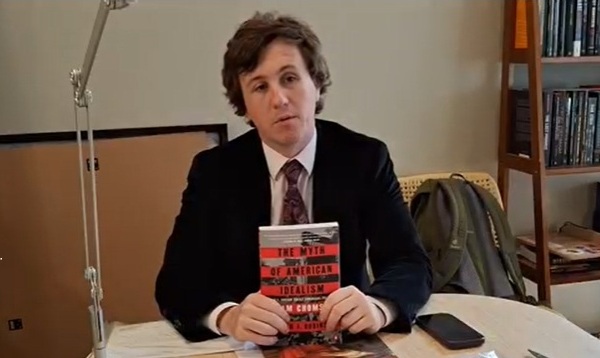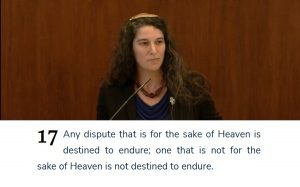Chomsky co-author Nathan Robinson to speak at UO Oct. 23
4 min read
Presenter: Tonight at 6:30 p.m. the University of Oregon Global Justice Program hosts Nathan Robinson, speaking on the life and legacy of Noam Chomsky. The lecture is in the Erb Memorial Union, Room 145. Nathan came to the KEPW studios to talk about the book he co-authored with Chomsky.
Nathan Robinson (Editor, Current Affairs): It is essentially a distilled and I think quite powerful summary of an argument that Noam Chomsky has made for 50 years of public life. So ever since he came into prominence as a critic of the Vietnam War in the mid-’60s, you know, he has been producing work that has exposed the mythologies of U.S. benevolence around the world and the reality of violence, aggression, domination.
[00:00:55] Anyone who’s cracked open a Chomsky book knows that he does so in granular detail, going through all of the statements of press secretaries and heads of state and members of Congress and showing how they obscure the reality of what the United States is actually doing and then comparing it to the actual situation on the ground. And, you know, I found his critique so powerful. It was a really important part of my own political awakening.
[00:01:26] Presenter: Nathan is editor of Current Affairs, a magazine of politics and culture, and that’s how he met Noam Chomsky.
[00:01:33] Nathan Robinson: I got to know him when I started the magazine and he became a subscriber. And we emailed back and forth and then I realized that there hadn’t been a really good Chomsky book for—’cause he hadn’t produced any new original books for a little while. And so I wanted to help him produce a kind of definitive statement of his ideas on this topic. So this book was, you know, me working with him to try and go through everything he’s said over the course of that 50 years and draw the most important insights out of it.
[00:02:08] For me, what I wanted to help him do was produce something that really distills his insights in their most powerful form so that other people in a new generation— you know, I’m at the University of Oregon this week speaking to students—a lot of them have never encountered Chomsky’s work before. And I want them to be able to have the experience with it that I had when I was in high school and college where it was just really eye-opening.
[00:02:42] And so when I went through this vast corpus of material, a lot of it is analysis of particular wars, particular conflicts. And so in the book, there are chapters on particular conflicts, because that is what Chomsky often does, is question the prevailing narrative of, say, the Vietnam War or the Iraq War.
[00:03:08] But then I also, what I wanted to do was something that he doesn’t often do in his work, which is to sort of ask: ‘Well, what are some of the key points that recur across these case studies, and what do they—what’s the takeaway as a whole?’ ‘Cause Chomsky was often commenting on the news of the day rather than putting forth a big grand theory of American politics.
[00:03:35] And so, you know, we began with what ended up being the title, which is The Myth of Idealism. I noticed that across his analysis, one theme that runs through it is the disjunction between the rhetoric of U.S. policymakers, about the benevolence of their motives and, you know, the evildoing of our enemies versus the actual reality of what happened in U.S. conflict, where the morality was at the very least, much more muddied than that.
[00:04:14] And then the second point is kind of captured in the subtitle of the book, which is How U.S. Foreign Policy Endangers the World. So it’s not just that there are these self-justifying myths that we talk about bringing democracy when we are in fact enhancing our own power, but also that the belief in these myths causes us not to notice the ways in which U.S. actions are in fact making the world a much more dangerous place, and are causing conflicts that might be avoidable if we were less convinced of the righteousness of U.S. policy, right?
[00:04:56] And so an example would be, you know, he talked a lot about the potential for a catastrophic war with China, in which, because U.S. policymakers talk about a threat from China and perceive and tell people they face a threat from China, they act in ways that make war with China ultimately more likely and endanger the world, right?
[00:05:17]So because we see an enemy and act as if we are trying to stop an existential enemy, we thereby bring that enemy into existence and we create conflict that could be avoidable through diplomacy if we didn’t swallow these self-aggrandizing myths.
[00:05:34] Presenter: Nathan Robinson, co-author with Noam Chomsky of the book, The Myth of American Idealism: How U.S. Foreign Policy Endangers the World, will be speaking tonight at 6:30 in the Erb Memorial Union, Room 145.







